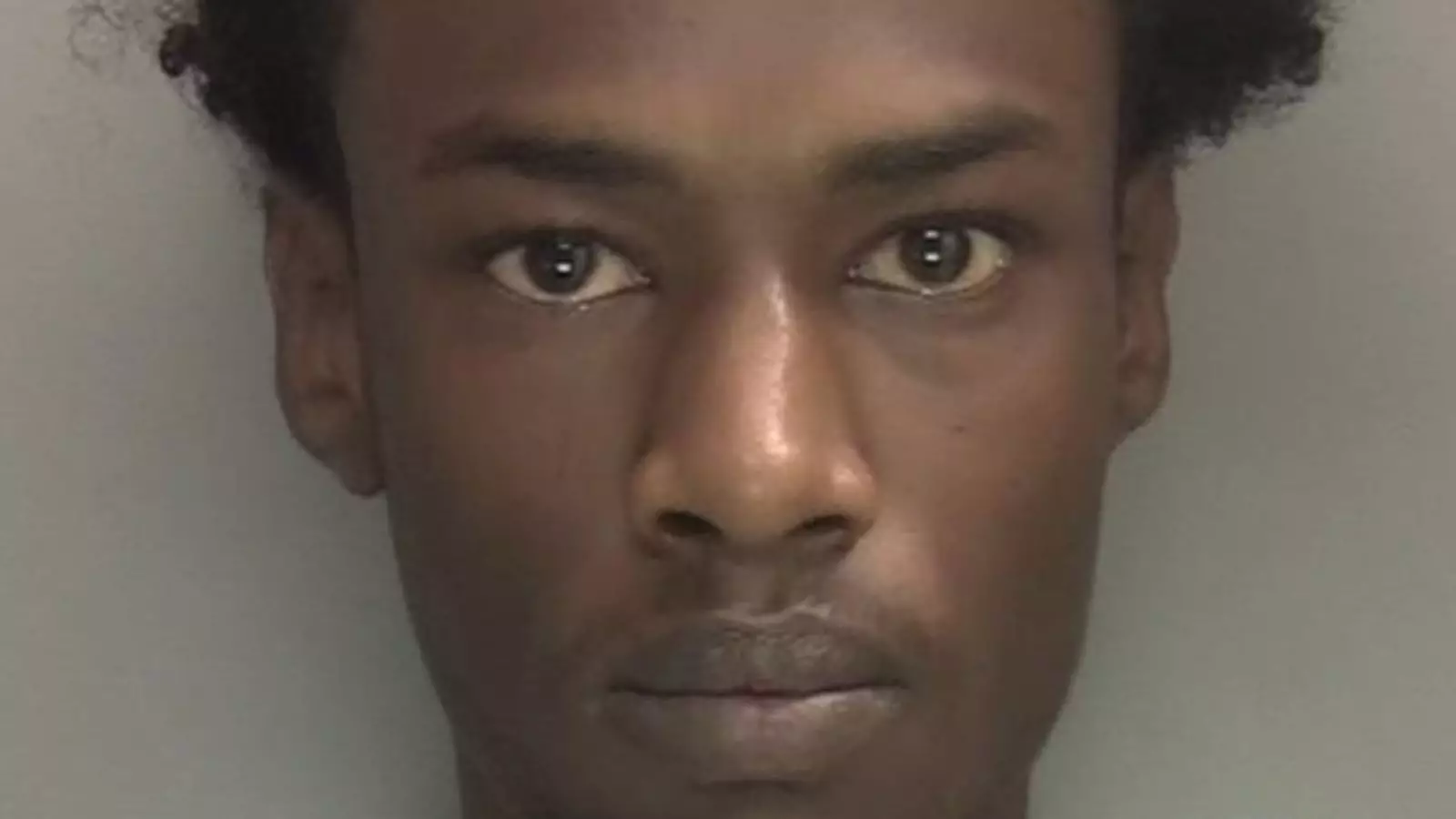In a disturbing incident that highlights the dire consequences of aggressive driving behavior, a young e-bike rider named Liam Jones lost his life in Birmingham, England. The 22-year-old was performing a “wheelie” move—a popular stunt among cyclists—when he caught the attention of 21-year-old Abdirahman Ibrahim, who decided to take matters into his own hands. Ibrahim, fueled by anger and a desire to “teach him a lesson,” pursued Jones and rammed his vehicle into the defenseless rider not once, but twice. The decision to escalate a seemingly minor infraction into a deathly confrontation raises significant concerns about road safety and personal accountability.
What transpired on that fateful night was less about a road mishap and more about a deliberate act of aggression. After initially encountering Jones and his friend on their bicycles near Coventry Road, Ibrahim made a fateful choice to chase them as tensions escalated. Instead of diffusing the situation, he ramped up the danger. CCTV footage captured the moments leading to the tragedy, showcasing how a simple stunt was met with relentless hostility. The pursuit culminated in a horrific collision; not only did Ibrahim’s reckless actions cause Jones to lose control and crash into a concrete bollard, but they also ignited a tragic series of events that would result in a loss of life.
The legal outcome of this pursuit was severe. Following a trial at Birmingham Crown Court, Ibrahim was convicted of murder, a verdict that underscored the gravity of his actions. His brother, Abdullahi Ibrahim, who assisted him during the attempted cover-up, pleaded guilty to aiding an offender, reflecting a familial bond that ultimately led to mutual consequence. Both will face sentencing, but the real cost extends beyond prison time; it is a lost life and shattered families, along with impacts that ripple through the community.
The death of Liam Jones left an indelible mark on the surrounding community, igniting fears concerning safety and aggressive driving. West Midlands Police stated that the brothers’ actions caused significant concern among local residents, prompting them to take measures to ensure justice for Jones. The investigation revealed that the catastrophe was not a mere accident gone wrong, but rather a premeditated instance of road rage. With extensive review of CCTV footage coupled with thorough police work, law enforcement made it clear that Ibrahim’s decision to chase was a conscious choice—one that exemplifies a blatant disregard for human life.
As this case unfolds, it serves as a stark reminder of the consequences of poor choices made in moments of anger. Abdirahman Ibrahim’s actions raise questions about accountability on the road, as well as the manifestations of vigilante behavior. When individuals feel compelled to take justice into their own hands, the results can be fatal. The importance of understanding that every action has consequences cannot be overstated—what may begin as a minor annoyance can quickly spiral into devastating outcomes.
The tragic outcome of Liam Jones’s tireless enthusiasm for biking combined with Ibrahim’s impulsive aggression creates a narrative that must not be overlooked. It engenders discussions surrounding road safety, the importance of reactions to provocation, and the heavy penalties that can arise from seemingly minor infractions. As authorities work on sentencing both Ibrahim brothers, the memory of Liam Jones serves as a solemn lesson: the impulse to retaliate can yield tragic results—results that not only affect the individuals directly involved but also resonate within families and communities for years to come.
In short, this incident underscores the urgent need for individuals to reflect on their choices, promoting a culture of mindfulness on the road and fostering genuine respect for all forms of transportation. This tragic event must galvanize both dialogue and action towards safer streets and more compassionate interactions, ensuring that the echoes of Liam’s preventable death are not forgotten but serve as a catalyst for change in our communities.


Leave a Reply